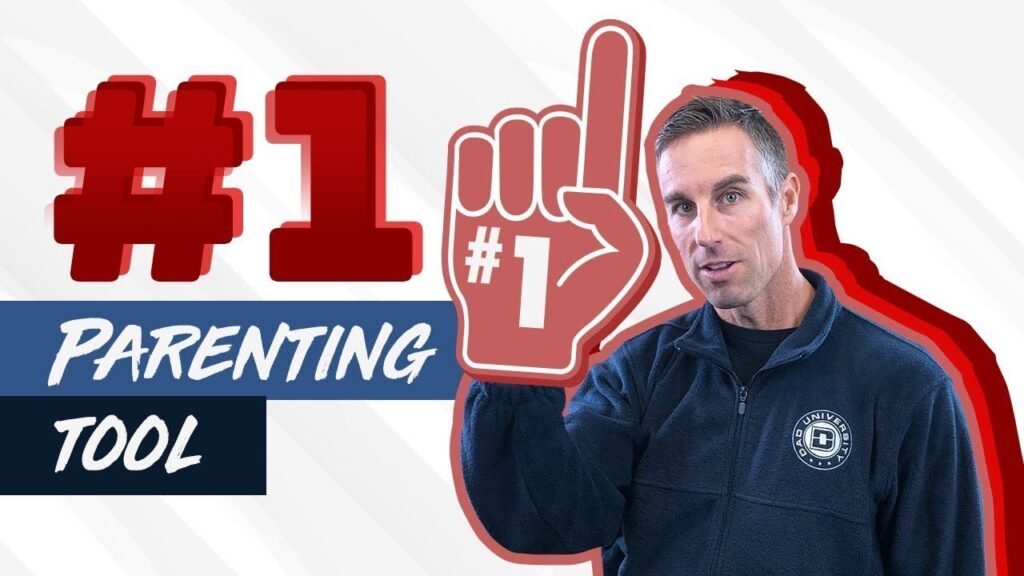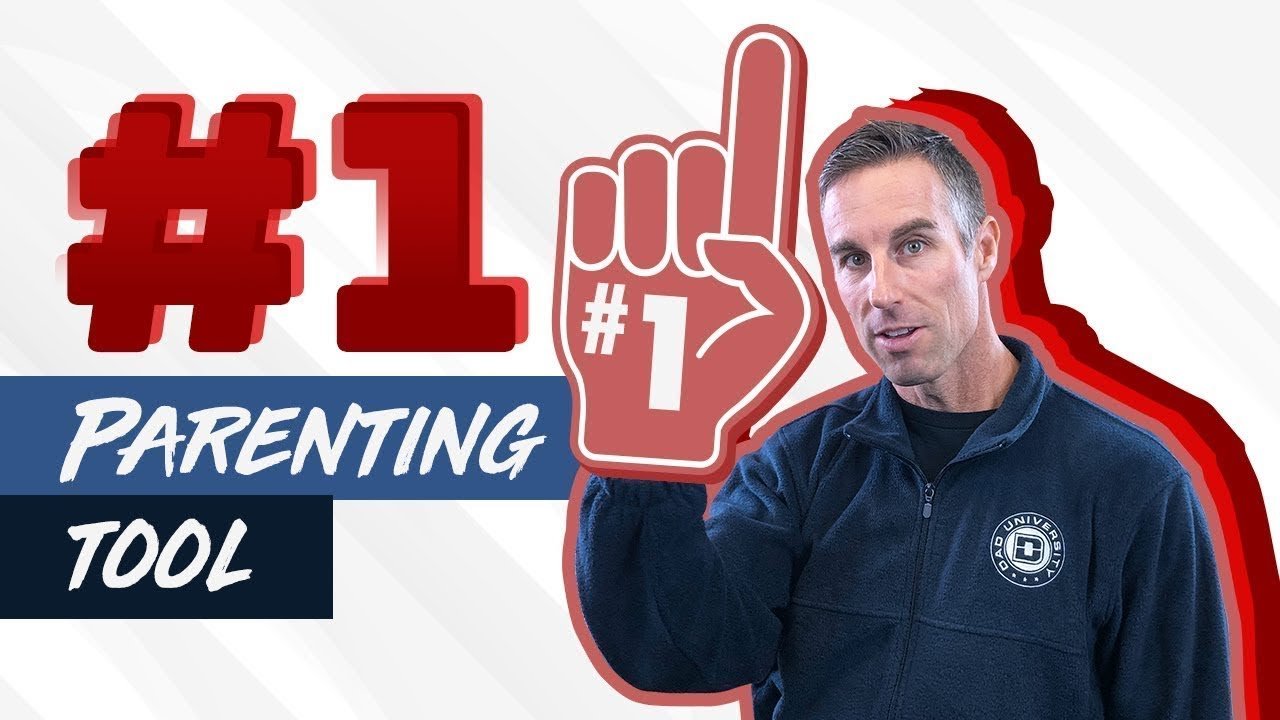In the world of parenting, one question that is often asked is, “What is the most important thing to know as a parent?” Well, the answer is quite simple: empathy. When you learn to be empathetic towards your children, it can completely change your relationship with them, as well as with your partner. Empathy means putting yourself in their shoes and viewing things from their perspective. It’s a game changer that can have a positive impact on all your relationships. Whether it’s dealing with a frustrated four-year-old or navigating the complexities of raising young adults, understanding where they’re coming from can make your bond even stronger.
Learning to be empathetic has been a game-changer for many parents, including myself. It has not only changed the way I parent, but also how I engage with my spouse, co-workers, and friends. When you’re empathetic, you shift your focus away from yourself and genuinely consider the other person’s feelings and experiences. It’s a valuable skill that allows you to better understand and support your children, creating a closer and more fulfilling relationship. So, if you want to enhance your parenting journey and strengthen your connections, remember the immense power of empathy.

The Definition of Empathy
Understanding the concept of empathy
Empathy is the ability to understand and share the feelings of another person. It involves putting yourself in someone else’s shoes and viewing things from their perspective. As a parent, empathy entails recognizing and acknowledging the emotions and experiences of your children. It involves being present and attentive to their needs, feelings, and reactions. By understanding their world, you can provide support, comfort, and guidance.
The importance of empathy in parenting
Empathy plays a crucial role in effective parenting. It is the foundation of a strong parent-child bond and promotes healthy emotional development. When parents practice empathy, they create a safe and nurturing environment for their children to express themselves and learn essential life skills. It also fosters a sense of mutual trust, respect, and understanding within the family. Empathy helps parents connect with their children on a deep emotional level, leading to more meaningful and satisfying relationships.
Empathy Enhances Communication
Recognizing and validating emotions
One of the key aspects of empathy is being able to recognize and validate the emotions of your children. By acknowledging their feelings and letting them know you understand, you create an atmosphere of trust and support. Validating their emotions doesn’t necessarily mean agreeing with them or condoning their behavior but rather acknowledging that their feelings are real and important to them. This validation helps children feel heard and understood, allowing for open and honest communication.
Improving listening skills
Being empathetic as a parent also means actively listening to your children. This involves giving them your full attention, maintaining eye contact, and being present in the moment. By truly listening, you show your children that their thoughts and opinions matter. It also allows you to better understand their needs and concerns, leading to more effective problem-solving and decision-making. Improved listening skills strengthen the parent-child relationship and create an open line of communication.
Empathy Fosters Emotional Connection
Creating a safe and trusting environment
Empathy creates a safe and trusting environment where children feel comfortable expressing their emotions. By responding with empathy, parents assure their children that it is okay to feel a certain way and that they are not alone. This safe space encourages openness and vulnerability, enabling children to share their thoughts and experiences without fear of judgment or criticism. It builds a strong emotional connection between parent and child, fostering a sense of security and support.
Building a strong parent-child bond
When parents practice empathy consistently, it strengthens the bond between them and their children. By understanding their children’s experiences and emotions, parents can provide appropriate support and guidance. This bond is built on trust, respect, and understanding, which are essential for a healthy parent-child relationship. Empathy helps parents connect with their children on a deeper level, creating a solid foundation for mutual love, care, and respect.
Empathy Promotes Healthy Development
Supporting emotional intelligence
Empathy plays a crucial role in developing emotional intelligence in children. By validating and acknowledging their emotions, parents teach children to identify and understand their feelings. This self-awareness allows children to regulate their emotions better and make healthy choices. Empathy also helps children develop empathy towards others, teaching them to consider different perspectives and show compassion. Emotional intelligence is a valuable life skill that enables children to navigate relationships and handle challenges effectively.
Encouraging self-expression and self-awareness
When parents practice empathy, they encourage their children to express themselves freely and honestly. By creating a safe environment where their emotions are valued, children learn to trust their instincts and communicate their needs. This self-expression fosters self-awareness and self-acceptance, as children learn to understand their strengths, limitations, and areas for growth. Empathy empowers children to embrace their uniqueness and develop a strong sense of identity.
Empathy Encourages Respect and Understanding
Teaching empathy as a core value
Empathy is not just a trait; it is a core value that can be taught and cultivated. As parents embody empathy in their interactions with their children, they model the importance of understanding and considering the perspectives of others. By teaching empathy, parents instill in their children a sense of compassion, kindness, and respect for others. This value forms the basis for positive relationships, tolerance, and acceptance of diversity.
Promoting tolerance and acceptance
Empathy helps children develop a broader worldview and appreciation for diversity. By understanding different perspectives, children become more accepting and tolerant of others. They learn to respect and value individual differences, which promotes inclusivity and fosters harmonious relationships. Empathy encourages children to seek common ground, find solutions, and bridge divides, creating a more compassionate and understanding society.
Empathy Helps in Problem-Solving
Empowering children to find solutions
Empathy empowers children to become problem solvers by providing them with the support and guidance they need. By understanding their perspectives, parents can help their children identify solutions and make informed decisions. When parents approach problem-solving with empathy, they encourage their children to think critically, consider alternative viewpoints, and explore creative solutions. This fosters independence and resilience, as children learn to navigate challenges confidently.
Teaching conflict resolution skills
Conflicts are an inevitable part of life, and empathy plays a vital role in resolving them effectively. By practicing empathy, parents teach their children valuable conflict resolution skills. They encourage open communication, active listening, and understanding of the other person’s point of view. With empathy, children learn to find common ground, seek compromise, and resolve conflicts peacefully. Empathy in conflict resolution fosters healthy relationships and builds essential communication skills.
Empathy Enhances Discipline and Boundaries
Setting appropriate limits with empathy
Discipline is an essential aspect of parenting, and empathy can enhance its effectiveness. By setting appropriate limits with empathy, parents create boundaries that children can understand and accept. Instead of using harsh punishments or strict rules, empathetic discipline focuses on teaching children the consequences of their choices and actions. It helps children develop a sense of responsibility and accountability, while also preserving the parent-child relationship based on trust and understanding.
Using consequences as teaching moments
Empathy allows parents to use consequences as teaching moments rather than punishments. When children experience the consequences of their behavior, parents can empathize, discuss, and guide them towards understanding the impact of their actions. This approach helps children develop moral reasoning and problem-solving skills while learning to navigate the consequences of their choices. Empathy in discipline promotes learning and growth, enabling children to make better decisions in the future.
Empathy Combats Bullying and Promotes Kindness
Instilling empathy to prevent bullying
Empathy is a powerful tool in preventing bullying behavior. By teaching children to empathize with others, parents help them understand the impact of their actions on others. They cultivate kindness, compassion, and respect for others’ feelings and experiences. Empathy enables children to recognize and stand up against bullying, creating a culture of inclusivity and kindness. It empowers children to become positive changemakers in their communities, promoting empathy and understanding among their peers.
Teaching children to be kind and compassionate
Empathy teaches children the importance of kindness and compassion towards others. By modeling empathy in their own actions, parents inspire their children to treat others with respect and empathy. They encourage acts of kindness, empathy, and compassion, both within and outside the family. Through empathy, children learn the value of helping others, lending a hand, and making a positive difference in the lives of those around them.
Empathy Supports Mental Health
Helping children manage emotions and stress
Empathy plays a vital role in supporting children’s mental health by helping them manage their emotions and stress. When children feel understood and supported, they are more likely to develop healthy coping mechanisms and resilience. Empathetic parents create a safe space for children to express their emotions, providing comfort and reassurance. This support helps children develop emotional regulation skills, reducing the risk of anxiety, depression, and other mental health issues.
Promoting empathy as a self-care practice
Empathy is not only beneficial for others but also for the empathetic parent themselves. By practicing empathy, parents engage in self-care and personal growth. By understanding others’ needs and perspectives, parents develop a greater sense of self-awareness and emotional intelligence. Empathy promotes personal well-being, resilience, and empathy towards oneself. When parents prioritize empathy as a self-care practice, they model self-compassion and demonstrate the importance of nurturing their well-being.
Conclusion
The transformative power of empathy in parenting cannot be overstated. By practicing empathy, parents create a strong emotional connection with their children, fostering trust, understanding, and respect. Empathy enhances communication, problem-solving skills, and discipline strategies, leading to more effective and harmonious relationships. It also promotes healthy emotional development, empathy towards others, and mental well-being. As parents continue to cultivate empathy in everyday life, they create a positive and nurturing environment for their children to thrive. By prioritizing empathy, parents lay the foundation for a lifetime of compassionate and meaningful relationships.

